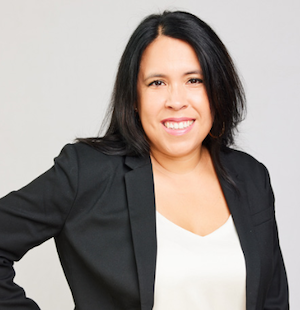There Can Be No Quality in ECE Without Respecting Educators
 Issue 51 of the Bank Street Occasional Papers Series is a response to Gunilla Dahlberg, Peter Moss, and Alan Pence’s 25-year interrogation of the concept of quality in early childhood education (ECE) (Dahlberg et al., 1999, 2013, 2023). Their groundbreaking work has called early childhood educators to question deeply held assumptions about the universality of childhood and how these shape the standardization of practices in early childhood settings around the world. They have argued that the homogenization of ECE practices is a factory-ization of early childhood that undermines cultural pluralism and the field’s equity aspirations. This raises an imperative to explore ideas and practices that go “beyond quality,” particularly through what Dahlberg and colleagues have called the “ethics of an encounter.” In essence, these ethical encounters are instances where early childhood educators practice democracy, including navigating conflicts, thereby creating equity-centered change through their small, day-to-day interactions and meaning-making with others (Dahlberg et al., 2013). However, while quality is typically conceived of as existing primarily in classrooms, the authors in Issue 51 remind us that the small world of ECE exists within oppressive systems imbued with intersecting racism, classism, sexism, and ableism, and that, therefore, a beyond quality praxis requires nurturing and supporting educators through partnerships (recognizing that resilience is social), developing political commitments and orientations through relationships, and mobilizing these relationships for collective action towards liberatory alternatives.
Issue 51 of the Bank Street Occasional Papers Series is a response to Gunilla Dahlberg, Peter Moss, and Alan Pence’s 25-year interrogation of the concept of quality in early childhood education (ECE) (Dahlberg et al., 1999, 2013, 2023). Their groundbreaking work has called early childhood educators to question deeply held assumptions about the universality of childhood and how these shape the standardization of practices in early childhood settings around the world. They have argued that the homogenization of ECE practices is a factory-ization of early childhood that undermines cultural pluralism and the field’s equity aspirations. This raises an imperative to explore ideas and practices that go “beyond quality,” particularly through what Dahlberg and colleagues have called the “ethics of an encounter.” In essence, these ethical encounters are instances where early childhood educators practice democracy, including navigating conflicts, thereby creating equity-centered change through their small, day-to-day interactions and meaning-making with others (Dahlberg et al., 2013). However, while quality is typically conceived of as existing primarily in classrooms, the authors in Issue 51 remind us that the small world of ECE exists within oppressive systems imbued with intersecting racism, classism, sexism, and ableism, and that, therefore, a beyond quality praxis requires nurturing and supporting educators through partnerships (recognizing that resilience is social), developing political commitments and orientations through relationships, and mobilizing these relationships for collective action towards liberatory alternatives.
The idea for this issue, which is a part of a broader project to identify and analyze promising, equity-committed early childhood policies and practices, emerged over the past few years. In the meetings and conversations we had with other researchers, policymakers, and educators, a general theme emerged—a dissatisfaction with how ideas about early childhood program quality are being operationalized. This reminded us of questions raised by Dahlberg and colleagues (2013):
- Who has been involved in the process of defining quality? Who has not?
- Might there be multiple perspectives or understandings of the idea?
- What is the context in which the idea has been formed?
 Issue 51 of the Bank Street Occasional Papers Series is a response to Gunilla Dahlberg, Peter Moss, and Alan Pence’s 25-year interrogation of the concept of quality in early childhood education (ECE) (Dahlberg et al., 1999, 2013, 2023). Their groundbreaking work has called early childhood educators to question deeply held assumptions about the universality of childhood and how these shape the standardization of practices in early childhood settings around the world. They have argued that the homogenization of ECE practices is a factory-ization of early childhood that undermines cultural pluralism and the field’s equity aspirations. This raises an imperative to explore ideas and practices that go “beyond quality,” particularly through what Dahlberg and colleagues have called the “ethics of an encounter.” In essence, these ethical encounters are instances where early childhood educators practice democracy, including navigating conflicts, thereby creating equity-centered change through their small, day-to-day interactions and meaning-making with others (Dahlberg et al., 2013). However, while quality is typically conceived of as existing primarily in classrooms, the authors in Issue 51 remind us that the small world of ECE exists within oppressive systems imbued with intersecting racism, classism, sexism, and ableism, and that, therefore, a beyond quality praxis requires nurturing and supporting educators through partnerships (recognizing that resilience is social), developing political commitments and orientations through relationships, and mobilizing these relationships for collective action towards liberatory alternatives.
Issue 51 of the Bank Street Occasional Papers Series is a response to Gunilla Dahlberg, Peter Moss, and Alan Pence’s 25-year interrogation of the concept of quality in early childhood education (ECE) (Dahlberg et al., 1999, 2013, 2023). Their groundbreaking work has called early childhood educators to question deeply held assumptions about the universality of childhood and how these shape the standardization of practices in early childhood settings around the world. They have argued that the homogenization of ECE practices is a factory-ization of early childhood that undermines cultural pluralism and the field’s equity aspirations. This raises an imperative to explore ideas and practices that go “beyond quality,” particularly through what Dahlberg and colleagues have called the “ethics of an encounter.” In essence, these ethical encounters are instances where early childhood educators practice democracy, including navigating conflicts, thereby creating equity-centered change through their small, day-to-day interactions and meaning-making with others (Dahlberg et al., 2013). However, while quality is typically conceived of as existing primarily in classrooms, the authors in Issue 51 remind us that the small world of ECE exists within oppressive systems imbued with intersecting racism, classism, sexism, and ableism, and that, therefore, a beyond quality praxis requires nurturing and supporting educators through partnerships (recognizing that resilience is social), developing political commitments and orientations through relationships, and mobilizing these relationships for collective action towards liberatory alternatives.
